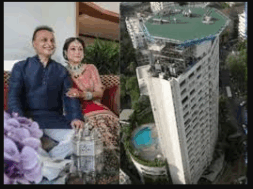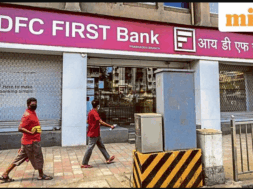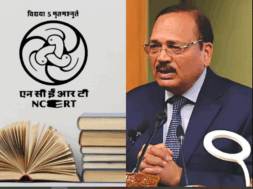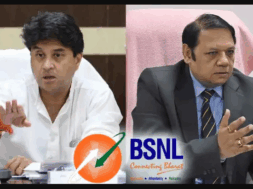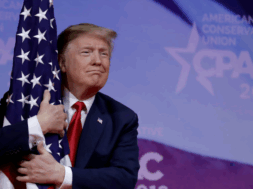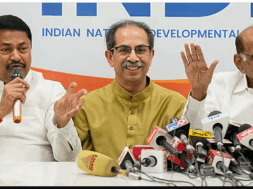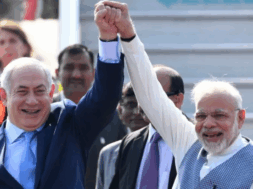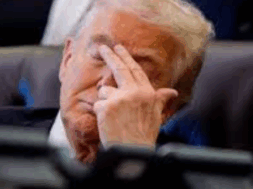No Breathing Time for Convicts of Bilkis Bano Case, SC Rejects Plea for Postponing Surrender
Manas Dasgupta
NEW DELHI, Jan 19: Strongly rebuking the Gujarat government for acting “in tandem” with the prisoners, the supreme Court on Friday refused to grant the 11 convicts in the Bilkis Bano gangrape and murder case any further breathing time and directed them to surrender before the police by Sunday as scheduled.
“When we passed our direction on January 8 for you to surrender, we gave you two weeks to put your affairs in order,” Justice B.V. Nagarathna, heading a Bench also comprising Justice Ujjal Bhuyan, told the convicts’ lawyers.
The court said the reasons cited for postponing their date of surrender lacked any merit. “We find no merit in the reasons cited… These reasons do not prevent them (convicts) from complying with our directions of January 8, 2024,” Justice Nagarathna said in the order at the end of a brief hearing during lunch hour.
One of them said he was a 62-year-old bachelor and needed time to settle his affairs. “Well, is that not all the more reason for you to not seek more time?” Justice Nagarathna asked. The convicts had cited several reasons concerning their health or that of their family members’, the wedding of a son, harvesting season, ailing parents, etc, to seek more time before they report back to jail.
The Bench of Justices Nagarathna and Bhuyan had, in its judgment on January 8, ordered the convicts to report back to jail. The verdict had concluded that the remission of their life sentence by the Gujarat government was illegal. They were released by the Gujarat government on Independence Day in 2022, on the basis of an obsolete law.
Ms Bano and civil society activists filed frantic appeals against their release, and these were heard by the Supreme Court this month. An irate top court revoked the convicts’ release; the court cancelled its May 2022 order, which had allowed the 11 to appeal to the Gujarat government for early release.
Applications from the convicts for more time before surrendering had started trickling in since Thursday, requesting postponement of their impending surrender. Three of a total 11 convicts in the case – Govindbhai Nai, Mitesh Chimanlal Bhatt, and Ramesh Rupabhai Chandana – had mentioned their pleas on Thursday for urgent hearing as the deadline for their surrender would expire on January 20.
Justice Nagarathna had asked the Supreme Court Registry to inform the Chief Justice of India about the convicts’ pleas and seek orders to reconstitute a Bench of herself and Justice Bhuyan on Friday.
The 11 men were serving life sentence for gangraping a pregnant Bilkis Bano and murdering seven of her family members including her three year old daughter during the 2002 Gujarat riots. They had served 14 years of their sentence at the time of their premature release by the Gujarat government in August, 2022.
The 251-page judgment of the top court on January 8 had described the crimes of the men as “grotesque and diabolical driven by communal hatred.” The court had also made scathing remarks about the ruling BJP government in Gujarat for acting “in tandem” with the prisoners to order their early release after “usurping the power” to do so.
The court said the May, 2022 order allowing the convicts to appeal to the Gujarat government for remission was “obtained through fraudulent means and suspension of facts” and rebuked the state government for not filing a petition to review the release. It also said the state ought to have noted the men could only be released by Maharashtra where they were tried.
The convicts had been released by Gujarat government after it consulted a ‘panel’ that included men linked to the ruling BJP. The panel declared the rapists and killers “sanskari Brahmins” and recommended their release citing a 1992 remission policy, which has since been overwritten. The convicts were given a hero’s welcome when they returned home after premature release and were seen sharing stage with BJP leaders including MP, MLA
Bilkis Bano was 21 years old and five months’ pregnant when she was gang-raped while fleeing during the communal riots that broke out after the fire in Sabarmati Express in which 59 kar sevaks were killed. Her three-year-old daughter was among the seven family members slaughtered in the riots.
Meanwhile, in relation to another case related to alleged fake encounters by the Gujarat police after the riots, the Gujarat government told the Supreme Court that the petitioners who have sought a probe into the alleged fake encounters in the state from 2002 to 2006 need to explain the reasons for their “selective public interest” in raising the issue.
A bench of Justices B R Gavai and Sandeep Mehta was hearing two separate pleas filed in 2007 by senior journalist BG Verghese, and noted lyricist Javed Akhtar and Shabnam Hashmi, seeking a probe into the alleged fake encounters. Verghese died in 2014. Solicitor General Tushar Mehta, appearing for the state, told the bench that encounters have taken place in other states also.
“They (petitioners) say we want investigation of a few encounters during a particular period in the state of Gujarat. Why this selective public interest? They have to answer that,” he told the bench. “The petitioners will have to satisfy the court about their selective public interest,” Mehta asserted.
The Supreme Court had earlier appointed a monitoring authority headed by former top court judge Justice H S Bedi which had probed 17 alleged fake encounter cases in Gujarat from 2002 to 2006. The committee, which had submitted its report in a sealed cover in 2019, recommended prosecution of police officials in three out of the 17 cases it probed.
In its final report filed in the Supreme Court, the committee had said three persons were prima facie killed in fake encounters by the Gujarat Police. During the hearing on Thursday, advocate Prashant Bhushan, appearing for one of the petitioners, said the committee report has already come before the court.
“All that is needed to be done is to prosecute those persons who have been identified in the report,” he said, adding the panel has come to a prima facie conclusion in three cases. “The matter is required to be heard,” the bench observed, and posted the pleas for hearing after two weeks. The Gujarat government had earlier voiced reservations about the locus standi of the petitioners.
In its final report filed in the Supreme Court, the Justice Bedi committee had said three persons — Sameer Khan, Kasam Jafar and Haji Ismail — were prima facie killed in fake encounters by police. It had indicted a total of nine police officials, including three inspector rank officers. It, however, did not recommend prosecution of any IPS officer.
On January 9, 2019, a bench headed by then Chief Justice Ranjan Gogoi had rejected the Gujarat government’s plea to maintain confidentiality of the final report of the committee and ordered that it be given to petitioners.
The panel had also dealt with 14 other cases which related to alleged fake encounter killings of Mithu Umar Dafer, Anil Bipin Misra, Mahesh, Rajeshwar, Kashyap Harpalsingh Dhaka, Salim Gagji Miyana, Jala Popat Devipujak, Rafiksha, Bheema Maanda Mer, Jogindrasinh Khatansing, Ganesh Khunte, Mahendra Jadav, Subhash Bhaskar Nayyar and Sanjay.


